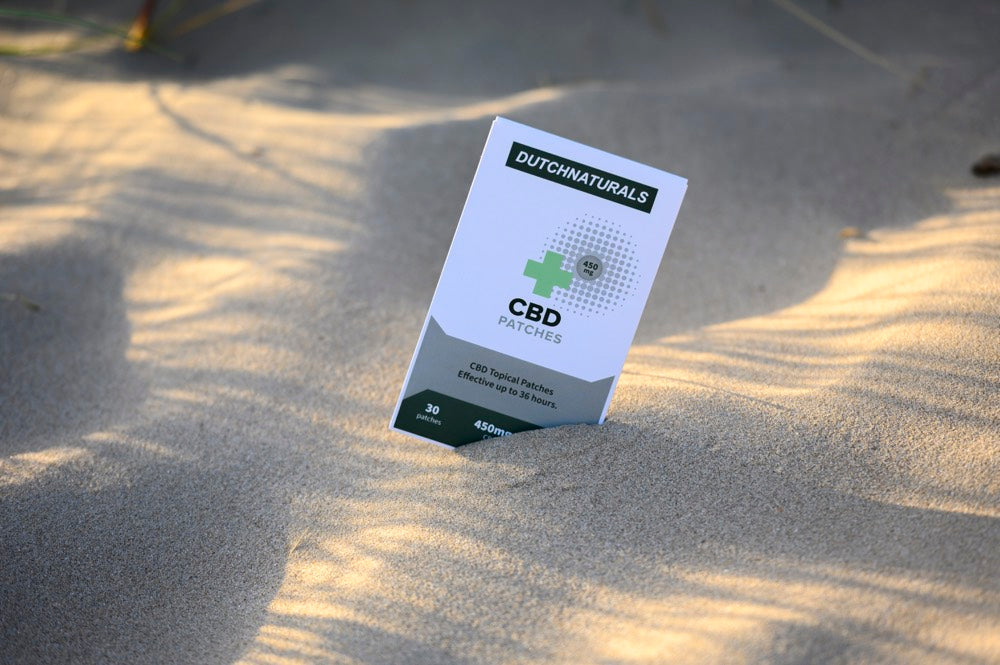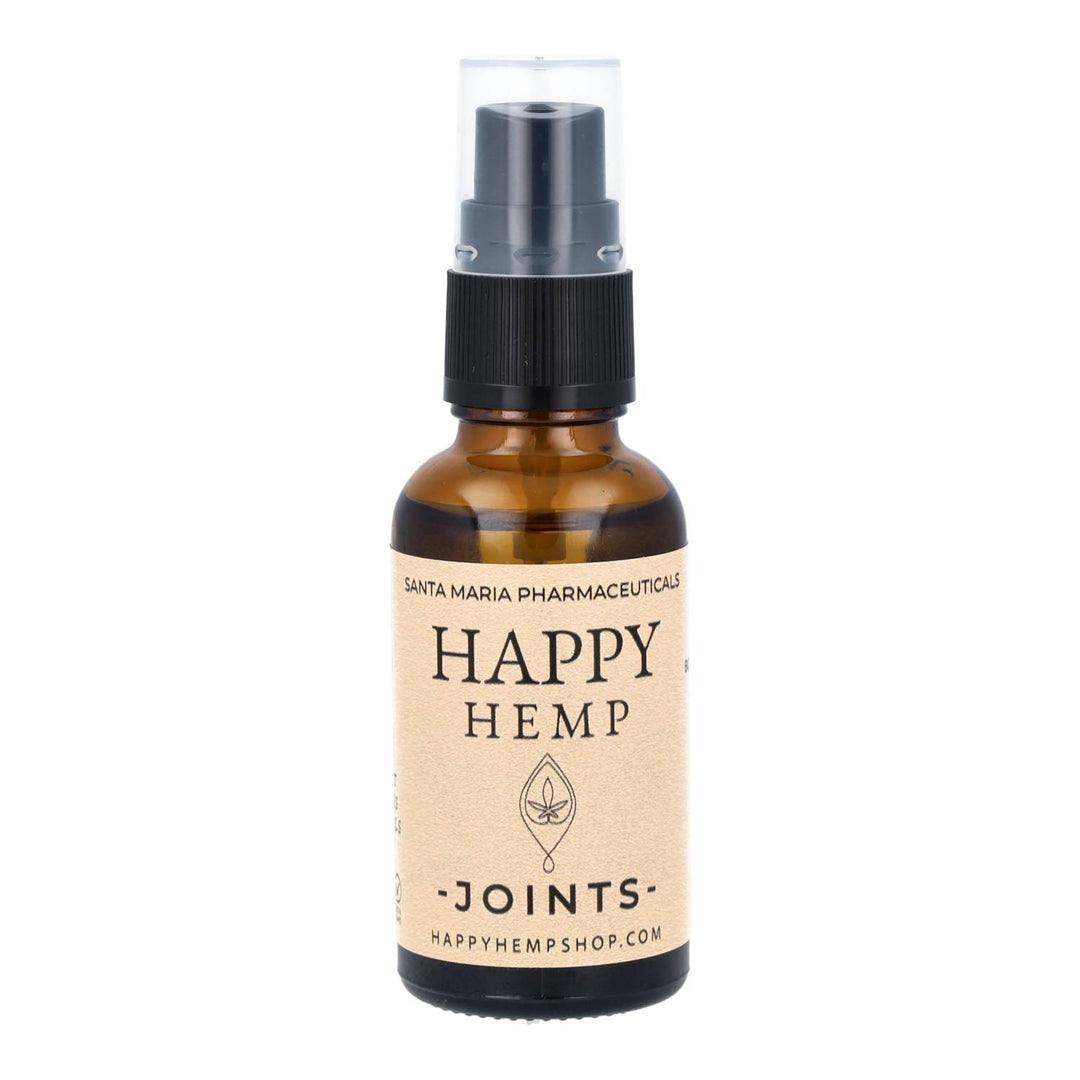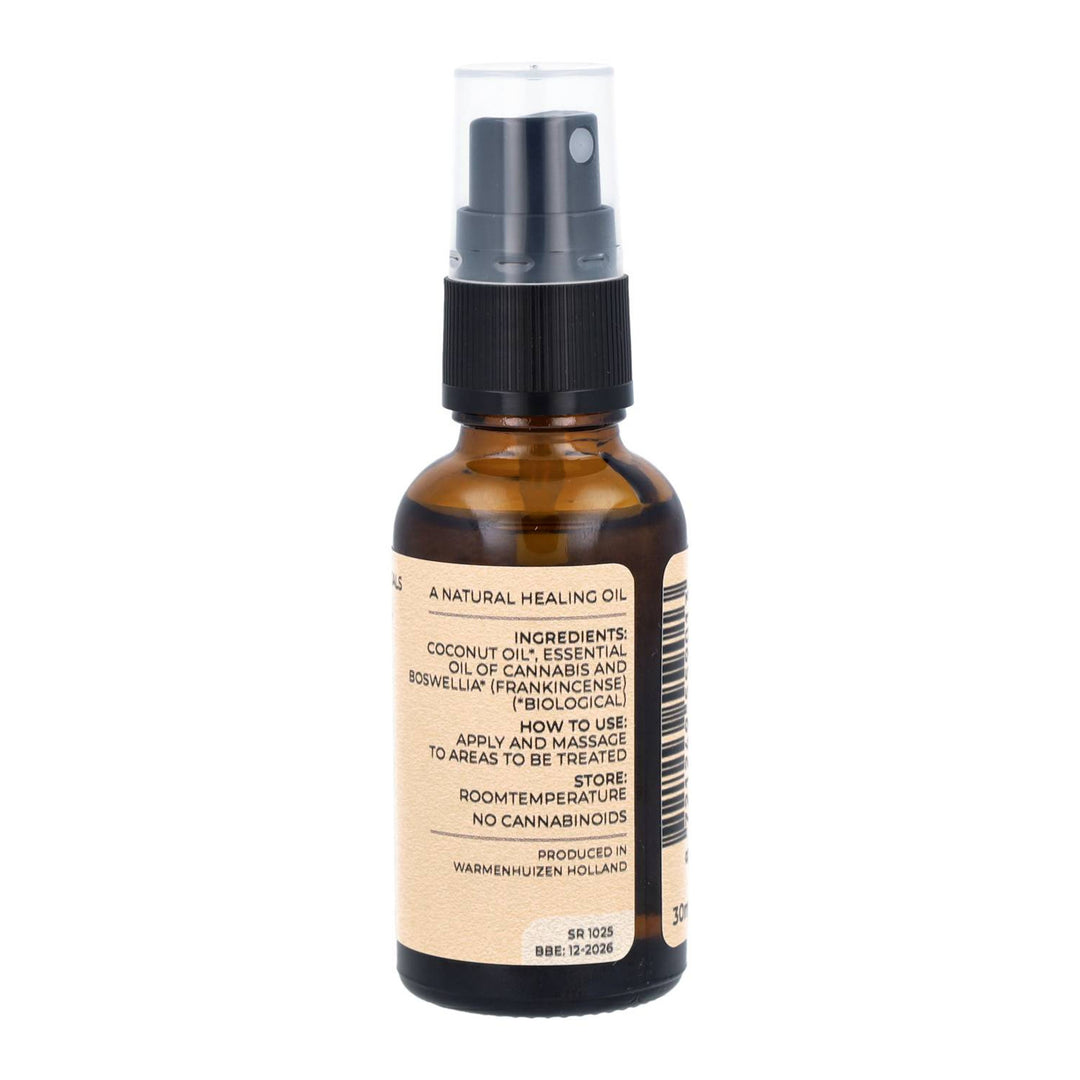CBD for Pain
Living with pain can be disruptive and frustrating. Discover how CBD may interact with your body's pain response and how it could be a natural approach to your wellness journey.
Our CBD products work with your body’s endocannabinoid system to provide an alternative way to manage pain, increase mobility and reduce inflammation. They can also enhance sleep and reduce anxiety, which in turn supports pain relief.
Understanding what CBD can do for Pain

Types of pain
CBD could be beneficial for several types of pain. Chronic pain: for conditions like arthritis, fibromyalgia, and muscle spasms, CBD's anti-inflammatory properties may be beneficial. Neuropathic pain: This pain originates from nerve damage and can be quite severe. Studies suggest CBD may help manage it. Joint pain: Early research indicates CBD may reduce inflammation and pain associated with osteoarthritis.
The CBD effect
In the majority of cases, cannabidiol is proven to be a strong anti-inflammatory. It has neuro-regenerative properties that actively help to decrease the level of inflammation and restore damaged nerves. CBD can have a positive effect on the perception of pain, too. It delays the speed at which the body breaks down some of the body’s cannabinoids like anandamide and 2-AG. These substances are partly responsible for the feeling of happiness, but also regulate your pain.
Scientific evidence
Emerging scientific research suggests that CBD holds promise for managing different types of pain, including chronic pain, neuropathic pain, and pain associated with conditions like arthritis. While more research is needed to understand CBD’s mechanisms and long-term effects fully, initial findings indicate that CBD could offer a natural approach to pain management.Reduce (chronic) pain with CBD
Pain, both regular and chronic, can significantly impact your daily life. While traditional remedies exist, some people choose (to add) natural alternatives. Cannabidiol (CBD), a non-intoxicating compound found in hemp, has emerged as a potential option for pain relief.
Understanding CBD:
Unlike its psychoactive cousin, THC, CBD doesn’t make you high. This makes it appealing for people seeking pain management without mind-altering effects. Research suggests CBD interacts with the body's endocannabinoid system, which regulates pain and inflammation.
Possible benefits of CBD for pain:
• Reduced inflammation: CBD's anti-inflammatory properties can help alleviate pain associated with conditions like arthritis, fibromyalgia, and neuropathy.
• Pain management: CBD may influence brain and nervous system pain signals, potentially reducing discomfort.
• Neuropathic pain relief: Early studies show promise for CBD in managing neuropathic pain caused by nerve damage.
Advantages of using CBD for pain:
• Targeted relief: CBD may offer localized or whole-body pain relief without the harsh side effects of some traditional medications.
• Non-addictive: Unlike some pain medications, CBD is non-addictive and doesn't carry the risk of dependence or withdrawal.
• Various forms: CBD comes in various forms, such as oils, capsules, and topicals, allowing you to choose a method that suits your needs.
Take the first step towards natural pain relief and reclaim your quality of life with CBD. Explore our premium selection of CBD products and discover the power of nature's remedy for (chronic) pain.
How to use CBD for (chronic) pain
Your guide to using CBD for Pain:
Finding your perfect fit
• Choose the right product. From oils to patches, pick a form that suits you (consider potency, delivery, and ingredients).
• Start low, go slow. Begin with a low dose (around 10-20mg daily) and gradually increase as needed.
Maximizing effectiveness:
• Water-soluble CBDActive+: Mix with any hot or cold drink, fastest absorption.
• Sublingual for oil. Place oil under your tongue for faster absorption (hold 30-60 seconds before swallowing).
• Consistency is key. Take your CBD product daily, ideally at the same time, for best results.
Tracking your progress:
• Listen to your body. Notice how you feel and adjust dosage based on your pain levels, mood, and well-being.
• Find your sweet spot. Experiment to discover the optimal dosage and routine that works for you.
A holistic approach:
• Combine with healthy habits. Pair CBD with relaxation techniques, deep breathing, and therapy for comprehensive pain management.
Safety first:
• Talk to your doctor. Consult a healthcare professional before using CBD, especially if you have health conditions or take medications.
• Be aware of side effects. CBD is generally safe, but some experience dry mouth, dizziness, or fatigue. If you have any concerns, stop using it and see a doctor.
• Stay informed. Keep up-to-date on the latest research and regulations regarding CBD use for pain.
Dosage of CBD
There is no one-size-fits-all solution for determining how much CBD supplement you should take. It is best to start with a lower dosage (approximately 10-20 mg per dose) to evaluate how your body responds before gradually increasing the amount. Our products have dosage advice on their package; this is a starting dose. Increase the dosage over time when you feel it's necessary.
Furthermore, it’s important to understand that each individual’s ideal CBD dosage is unique. Depending on your specific condition and needs, you may need to fine-tune the dosage until you strike the perfect balance between symptom relief and maximum benefit, all while avoiding any adverse side effects.
There are some situations where higher dosages of CBD may be warranted for pain management:
Severe or chronic pain: Individuals experiencing severe or chronic pain conditions may require higher doses of CBD to achieve adequate relief.
High tolerance: Individuals who have built up a tolerance to CBD or other cannabinoids may require higher doses to experience the same level of pain relief.
Body weight and metabolism: Body weight and metabolism can influence how CBD is metabolized and utilized by the body.
Type of pain: Different types of pain may respond differently to CBD treatment. Neuropathic pain, for example, may require higher doses of CBD compared to inflammatory pain due to differences in the underlying mechanisms of pain.
It's important to note that while higher doses of CBD may be necessary for some individuals, it's essential to start with a low dose and gradually titrate upward while closely monitoring for any adverse effects.
Consulting with a healthcare professional or qualified CBD specialist can provide personalized guidance on dosing and help ensure safe and effective pain management. Additionally, be sure to use high-quality CBD products from reputable manufacturers to maximize the potential benefits and minimize the risk of adverse effects.
How fast does CBD work?
The onset of CBD's effects can vary depending on several factors, including the method of consumption, dosage, individual metabolism, and the specific reason for using CBD.
CBD's kick-in time depends on how you take it:
Fastest: Water-soluble CBDActive+. Could work in less than 15 minutes
Quick: Sublingual oil (regular CBD oil, applied under the tongue). 15-30 minutes
Moderate: CBD Capsules. 30 min - 2 hours
Slowest but targeted relief: Topicals patches. 15 min - 1 hour
While some experience immediate relief from CBD, others may take longer to feel its effects.


















